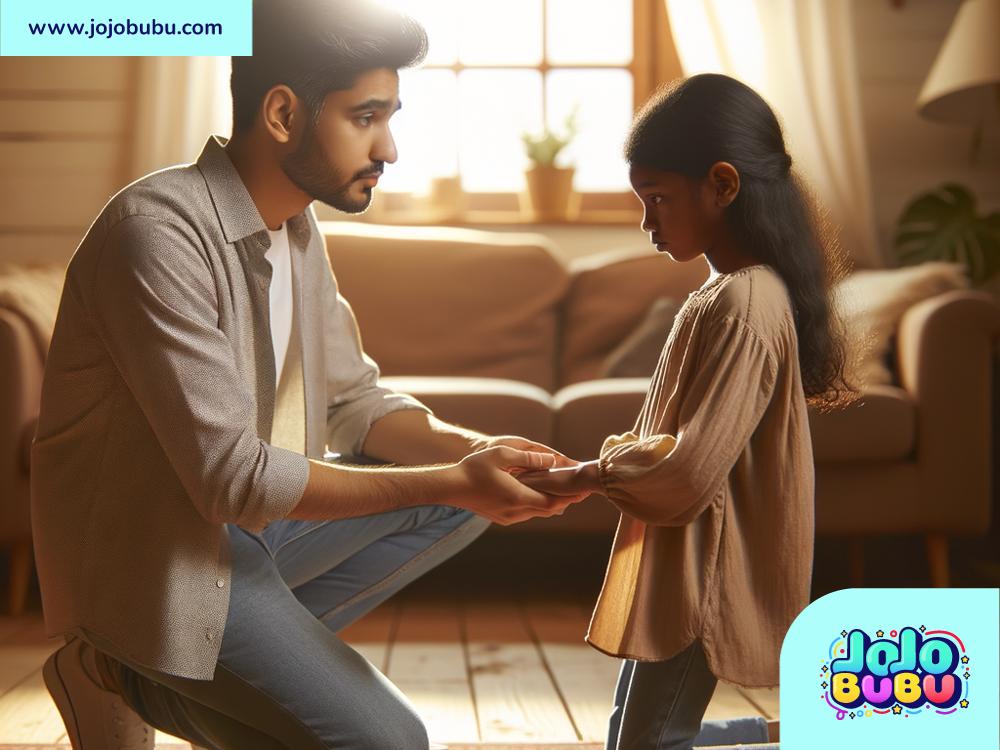Apologizing to Your Child: Why It Matters and How to Do It Right
As parents, we often feel the need to be strong, wise, and perfect in front of our children. After all, we want to guide them, teach them, and help them grow into kind, responsible adults. But the truth is, no parent is perfect. We all make mistakes, have bad days, or say things we later regret. When this happens, it’s important to do something many parents find difficult—apologize to our children.
Apologizing to your child might feel uncomfortable at first. You may worry that it will make you look weak or undermine your authority. However, the reality is very different. Saying “I’m sorry” not only shows strength but also teaches your child valuable life lessons. In this blog, we’ll explore why apologizing to your child matters and how to do it in a way that builds trust, respect, and love.
Why Apologizing to Your Child Is Important
-
Shows that everyone makes mistakes: When you apologize to your child, you’re teaching them an important lesson—it’s okay to make mistakes. Nobody is perfect, not even parents. Showing your child that you recognize your error helps them understand that mistakes are part of life, and what truly matters is how we handle them.
-
Teaches accountability: Apologizing is a way of owning up to your actions. When you say sorry, you’re taking responsibility for how your behavior might have affected your child. This teaches them to take accountability for their own actions too. Future generations thrive when they learn honesty and integrity.
-
Strengthens your bond: Apologizing to your child builds a stronger connection between you. It lets them know that you value and respect their feelings. When children feel heard and understood, they are more likely to trust you and communicate openly.
-
Fosters emotional growth: By apologizing, you’re modeling empathy and emotional maturity. Your child learns how to deal with conflicts and repair relationships. This skill will benefit them throughout their lives—not just with family, but also with friends, teachers, and coworkers when they grow older.
-
Prevents resentment: Unresolved hurt feelings can cause tension in relationships. If you make a mistake and don’t address it, your child might feel unheard or upset. Apologizing clears the air, helping both of you move forward without lingering resentment.
When Should You Apologize to Your Child?
You should apologize whenever you realize that something you said or did hurt your child or was unfair to them. Here are some common situations where an apology might be necessary:
-
Speaking harshly or yelling: If you raise your voice in frustration or say something unkind, it’s important to apologize. Let your child know that your emotions got the better of you and that you didn’t mean to hurt them.
-
Breaking a promise: Children take promises seriously, even small ones like playing a game with them or reading a book. If you break a promise, it’s important to acknowledge it and explain why it happened.
-
Misunderstanding or blaming your child unfairly: Sometimes, we may wrongly accuse our children of something. If you later discover you were mistaken, apologize right away.
-
Ignoring their feelings: If your child expresses being upset and you brush it off or fail to listen, take time to correct this and validate their emotions.
How to Apologize to Your Child
Now that we understand why apologizing is important, let’s talk about how to do it effectively. Here’s a simple guide:
-
Be honest and direct: Don’t make excuses or beat around the bush. Say what you’re apologizing for clearly. For example, “I’m sorry I yelled at you earlier. I was frustrated, but that wasn’t fair to you.”
-
Acknowledge their feelings: Let your child know you understand how your behavior might have made them feel. For example, “I think I upset you when I broke my promise. I understand why that hurt your feelings.”
-
Take responsibility: Avoid blaming others or external factors for your mistake. Own it fully. Instead of saying, “I snapped because I was tired,” say, “I snapped, and I shouldn’t have. I’ll work on handling my frustration better.”
-
Show empathy: Let your child know you care about their feelings. This builds connection. Try saying, “I’m sorry you felt sad when I said those things. I love you and don’t want to hurt your feelings.”
-
Make amends: Whenever possible, offer a way to make things right. For example, restore a broken promise or revisit the situation in a calmer way. You could say, “I know I said we’d play together but didn’t. Let’s play together now.”
-
Commit to improvement: Let your child know you’re working on being better. This teaches them about growth. For example, “Next time I get upset, I’ll pause and take a deep breath instead of shouting.”
The Impact of Apologizing
Apologizing to your child is more than just saying a quick “I’m sorry.” It’s a meaningful way to show respect, repair trust, and teach crucial life skills. When you apologize sincerely, your child learns empathy, accountability, and how to build strong relationships. They also see that you’re human—imperfect but willing to grow and learn.
Remember, apologizing doesn’t make you less of a parent. Instead, it makes you a better one. It shows your child that you value their feelings and are committed to creating a loving, respectful relationship with them. So the next time you make a mistake, don’t hesitate to say those two powerful words: “I’m sorry.” It might just be the most important lesson you teach them.

